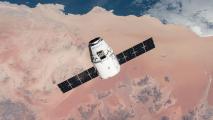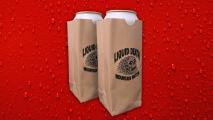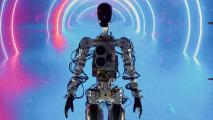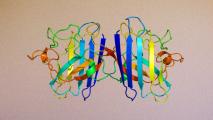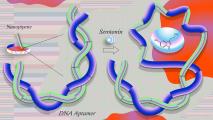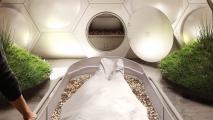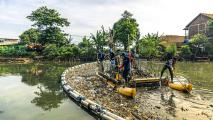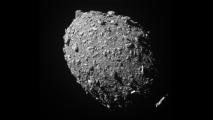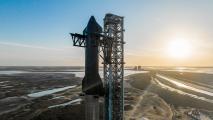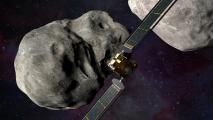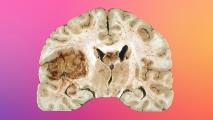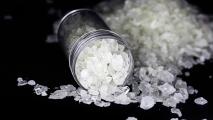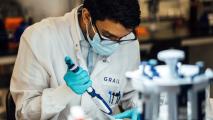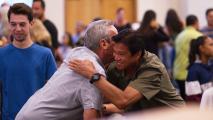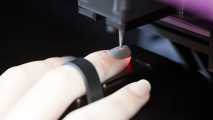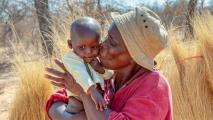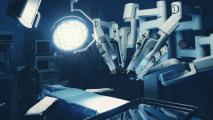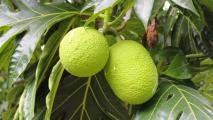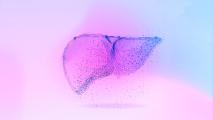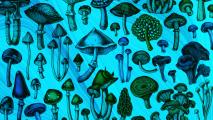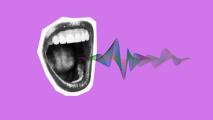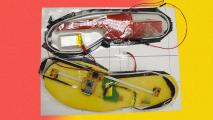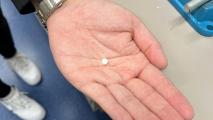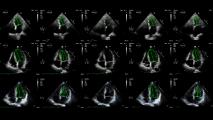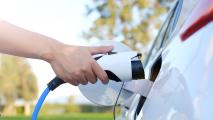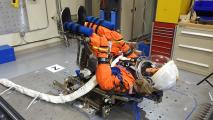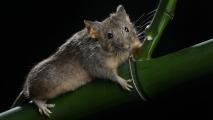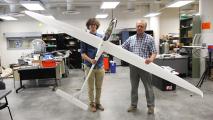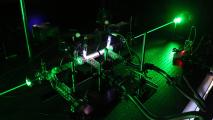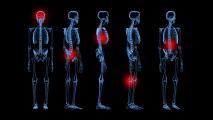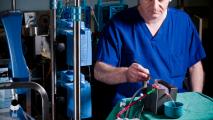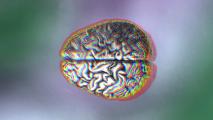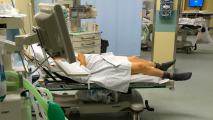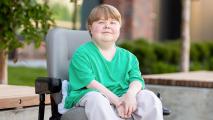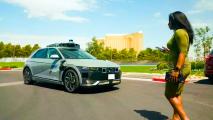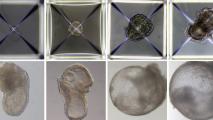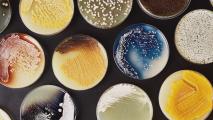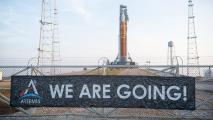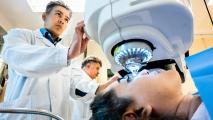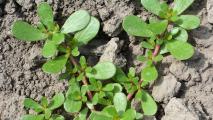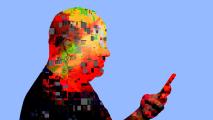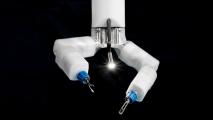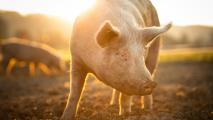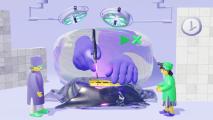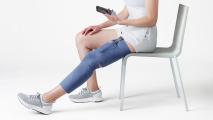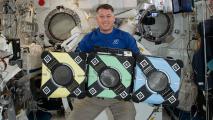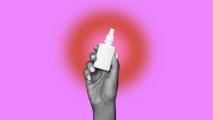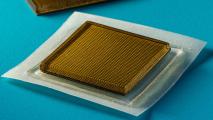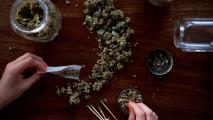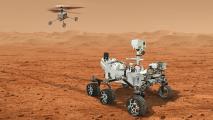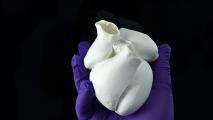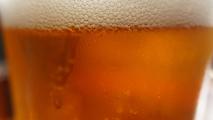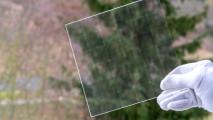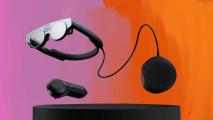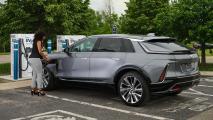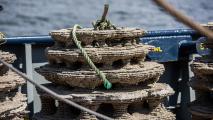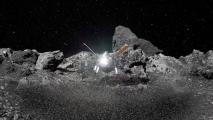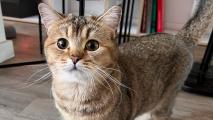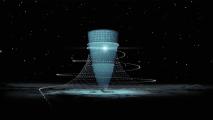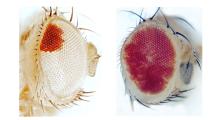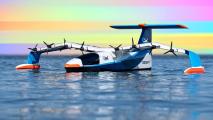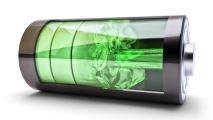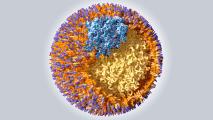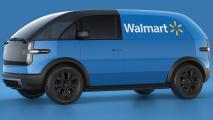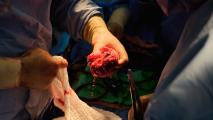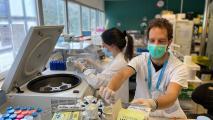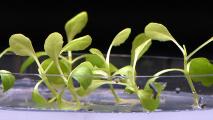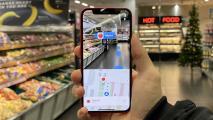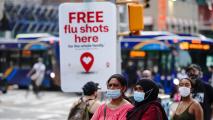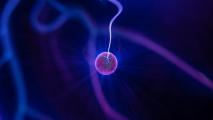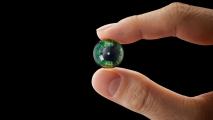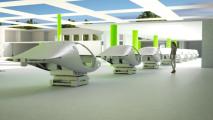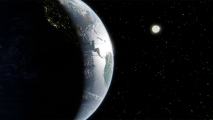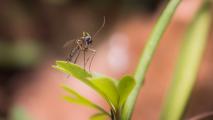Status: Featured
To promote content in various display modules across the site
SpaceX wants to save Hubble. NASA may be on board.
NASA and SpaceX may use a Dragon spacecraft to boost the Hubble Space Telescope into a higher, life-saving orbit.
You could soon get a piece of $700 million Liquid Death
Canned water startup Liquid Death, now valued at $700 million, is considering going public in the next two years.
Elon Musk demos humanoid robot, which will cost less than $20K
CEO Elon Musk unveiled two prototypes of the humanoid Tesla robot, expected to cost less than $20,000, at his company’s second annual AI Day.
Scientists claim “never before” seen results in ALS clinical trial
The ability of tofersen, a gene-based treatment for ALS, to improve symptoms is being hailed as a “treatment milestone.”
Shape-shifting DNA is helping researchers decode the human brain
Researcher Nako Nakatsuka has turned to DNA to tackle an important challenge: how do we measure chemicals in the brain?
Brain-zapping tech improves memory by more than 50%
A brain-zapping "memory prosthesis" funded by DARPA improved trial participants' ability to retain new information by more than 50%.
Human composting is now legal in five states
California is now the fifth state to legalize human composting, a more environmentally friendly alternative to burial or cremation.
From CDs to NFTs: Starbucks’ surprising history of embracing new tech
Starbucks’ newly-announced blockchain platform is just the latest example of the chain’s early embracement of tech.
This floating fence can catch plastic waste before it hits the sea
The majority of oceanic plastic waste comes from rivers and coasts. Floating fences may help stop it at the source.
Watch NASA’s DART spacecraft slam into an asteroid
NASA has slammed its DART spacecraft into an asteroid in the world’s first demonstration of planetary defense technology.
Elon Musk: Starship rocket “highly likely” to fly in November
SpaceX’s massive Starship rocket is “highly likely” to complete its first orbital test flight in November 2022, according to CEO Elon Musk.
China has discovered a brand new moon mineral
A new moon mineral discovered by China contains helium-3, an element that could one day fuel nuclear fusion reactors on Earth.
NASA’s DART spacecraft is about to smash into an asteroid
The DART spacecraft is now close enough to image the asteroid system it plans to slam into as part of NASA’s planetary defense efforts.
New treatment “starves” aggressive brain tumors in mice
A treatment that “starved” aggressive glioblastoma tumors in the brains of mice suggests a way to finally fight the deadly cancer in humans.
Meth addiction treatments are finally on the horizon
New antibody and drug therapies may soon help treat meth patients, who currently have no pharmacological interventions.
Blood test can find dozens of types of cancer, with few false positives
Grail’s Galleri multi-cancer blood test found multiple cancers in a study of over 6,000 patients.
Americans are becoming more likely to cooperate with strangers, not less
Americans are more likely to cooperate with strangers today than they were in the 1950s, according to the American Psychological Association.
Target is now offering the world’s first “robot manicure”
A robot that uses AI and 3D cameras to paint fingernails is now giving Target customers 10-minute manicures for just $8.
New wireless charging works from nearly 100 feet away
A compact wireless charging system uses harmless infrared light to power devices from nearly 100 feet away.
Breakthrough drug could save hundreds of thousands of children’s lives
A booster dose of the University of Oxford’s malaria vaccine demonstrated up to 80% efficacy in children over a year of follow-up.
Robotic surgery is a game changer for minimally invasive surgery
In partnership with Intuitive
More and more surgeons are using robotic surgical systems. Here’s why.
This strange fruit could feed the world during climate change
Ensuring food security over the coming century will be a major challenge. A new study suggests that breadfruit may be the answer.
First-of-its-kind trial will attempt to grow mini livers in people
A new treatment that could turn a single donor liver into “mini livers” capable of saving 75 or more lives is heading into human trials.
Microdosing’s benefits may be powered by belief
A small, double-blind, placebo-controlled study has found evidence that expectations may be behind microdosing’s beneficial effects.
NASA’s James Webb takes its first direct image of an exoplanet
NASA’s James Webb Space Telescope (JWST) has directly observed an exoplanet for the first time — ushering in a new era of exoplanet research
Meta can (kinda) guess what you’ve heard via your brain waves
Meta has created an AI that can tell what you’re hearing based on non-invasive brain scan measurements.
Shoe wearable could help Parkinson’s patients avoid falling
Data-collecting sensors in shoes can predict a Parkinson’s patient’s fall risk almost as accurately as standard walking tests.
Insulin pills could end the need for painful injections
Insulin pills designed to be dissolved in the mouth appear to overcome a major hurdle holding back the development of oral insulin.
First-of-its-kind trial shows AI beat humans at analyzing heart scans
Echonet, an AI trained to assess a measure of heart function, has outperformed trained technicians in both accuracy and efficiency.
Optimized charging powers EV batteries to 90% in 10 minutes
Tomorrow's electric vehicles could charge far more quickly thanks to optimized charging methods and innovative battery designs.
Three crucial experiments aboard NASA’s moon rocket
These Artemis 1 experiments could protect NASA astronauts and help usher in a future in which space is accessible to everyone.
FDA authorizes updated COVID-19 boosters
The FDA has authorized Pfizer-BioNTech’s and Moderna’s updated COVID-19 boosters, which target the now-dominant Omicron subvariants.
CRISPR fully reprograms mammal genome for the first time
CRISPR has been used to rearrange the chromosomes of lab mice, a world’s first in mammals and a breakthrough in bioengineering.
Future sailplanes could explore Mars like birds
Sailplanes could harvest wind energy from Mars’ atmosphere, probing unexplored regions for long stretches of time.
Newly discovered exoplanet may be first covered in liquid water
The first ocean planet may have just been discovered in the “Goldilocks zone” of a star 100 light-years from Earth.
A plasma reactor could help astronauts breathe on Mars
Future astronauts might produce oxygen on Mars by blasting carbon dioxide molecules apart inside a plasma reactor.
“Synthetic biomarkers” could catch your cancer in the future
When the body’s own biomarkers aren’t enough, researchers have begun creating their own to help fight cancer.
Scientists convert kidney to universal “O” blood type
Kidneys still need to be tissue matched, but by converting them to type O, more will be available for transplant.
New epilepsy treatment could stop seizures in their tracks
A new epilepsy treatment that's delivered as a nasal spray may be able to prevent seizures or even interrupt them.
A sepsis-catching AI has proven effective in hospitals
A new AI for spotting sepsis, which accounts for ⅓ of hospital deaths, was found to be effective in a large trial.
First personalized CRISPR therapy approved for trial
The FDA has approved a trial for the first personalized CRISPR therapy, which was developed to treat Duchenne muscular dystrophy.
Free Lyft robotaxis are hitting Las Vegas
Motional and Lyft are now offering robotaxi rides in Las Vegas.
Earth’s orbit is about to get way more crowded
Satellite mega constellations could bring the world online, but they're also a threat to astronomy. Can we study space and build in it, too?
Mouse embryos with beating hearts have been created entirely in the lab
Researchers at the Weizmann Institute of Science have developed mouse embryos, complete with organ structures, purely from stem cells.
Hacking DNA to beat climate change
In partnership with Ginkgo Bioworks
Nature already has a secret way to combat climate change. What if we could harness it?
NASA’s massive moon rocket is finally ready for launch (Updated)
After multiple delays, NASA’s new moon rocket — the Space Launch System — is finally on the launchpad ahead of its first test flight.
You no longer need a prescription to buy hearing aids in the US
The FDA is making over-the-counter hearing aids available to Americans, potentially making the devices cheaper and more accessible.
Eye implant made from pig skin reverses blindness in 14 people
Using collagen from pig skin, Swedish researchers created an artificial cornea that reversed blindness in 14 people.
Inside the crypto black markets of Argentina
Argentina’s black market for cash is embracing crypto — but it's not what crypto proponents expected.
Text-to-image AIs are changing art forever
Text-to-image AIs that draw whatever you describe in text are making it easy for anyone to create unique art online.
Weed’s “superpower” could help feed the planet
A Yale study focused on how photosynthesis works in the common weed purslane puts us closer to engineering crops resistant to climate change.
Startup that created Elon Musk’s foldable house opens a new factory
Elon Musk has confirmed he owns a foldable house made by Boxabl, a startup hoping its manufactured homes can help end the housing shortage.
Smartphones might actually be improving your memory
Rather than causing “digital dementia,” storing important information in a digital device can actually improve memory.
NASA is sending a robot surgeon to the ISS (Updated)
A MIRA surgical robot is heading to the ISS in 2024 so developers can test its potential to help astronauts survive medical emergencies.
Yale team partially revives dead pig organs an hour after death
Yale’s OrganEx technology has been used to partially revive the organs of dead pigs an hour after their hearts stopped beating.
Why don't surgeons train like fighter pilots? Now some do.
Using AI and analysis, Theator is helping surgeons improve how pilots and pro athletes do: by going to the tape.
Lightweight bionic zaps muscles to help you walk longer, faster
The AI-powered Neural Sleeve electrically stimulates the leg muscles to help people with mobility issues walk faster and longer.
How these schools create problem-solving optimists
In partnership with Higher Ground
Solving the world’s greatest problems starts in one place: educating the leaders of tomorrow. This school is planning to do just that.
Watch NASA’s flying space bots work alongside astronauts
The three Astrobee robots aboard the ISS foreshadow a future in which autonomous bots are NASA astronauts’ partners in space.
A cheap nasal spray cuts COVID-19 risk by 62%
A low-cost nasal spray co-developed by Oxford researchers could be the next powerful weapon against COVID-19.
MIT’s new ultrasound sticker lets you see inside your body
MIT researchers have created an ultrasound sticker that can continuously monitor a person’s organs and tissues for up to 48 hours.
What your weed label really means
Through the largest analysis of commercial cannabis flower yet, Colorado researchers have found that the current labeling system falls short.
NASA will send two more helicopters to Mars to bring home samples
Inspired by the overachieving Ingenuity, NASA has updated the Mars Sample Return mission to include two new Mars helicopters.
The future of meat is sustainable — and a little weird
Ideas to reduce the meat industry's impact on the environment include 3D-printed steaks, cultivated tiger meat, and potty-trained cows.
Harvard scientists closer to solving centuries-old heart mystery
Harvard researchers have used a new method to crack the heart’s weird spiral muscle.
Why is Singapore making beer from recycled wastewater?
“I mean, it tastes just like beer, and I like beer.”
Transparent solar panels could soon turn windows into energy harvesters
A new solar panel design can efficiently convert light into electricity, while still allowing almost 80% of incoming light to pass straight through.
Magic Leap reveals release date, price for new AR glasses
Two years after laying off half of its staff, Magic Leap is back with a new pair of AR glasses, the enterprise-focused Magic Leap 2.
VR exposure therapy app lets you face phobias on your own terms
Exposure therapy is a reliable technique for overcoming irrational fears, but it currently suffers high patient dropout rates.
This portable wind turbine folds up and fits in your backpack
In partnership with Million Stories
This personal wind turbine went viral. Can it be a real business?
GM has a plan to solve the biggest obstacle to EVs
GM, Pilot Company, and EVgo are building a new EV charging network comprising 2,000 stalls at up to 500 travel centers across the US.
3D-printed reefs installed around Denmark’s offshore wind farm
The massive Anholt Offshore Wind Farm in the North Sea is now home to 3D-printed reefs in a bid to boost biodiversity.
NASA was “completely wrong” about the asteroid Bennu
It wasn’t until landing on the asteroid Bennu that NASA learned its surface was more like a plastic ball pit than the relatively solid moon.
Large study of 20,000 cats and dogs could help pets live longer
Mars Petcare has announced the opening of a massive biobank to study aging and pet diseases.
The sci-fi plan to create artificial gravity on the moon, Mars
To create artificial gravity for off-world explorers, Japan plans to build spinning, cone-shaped facilities on the moon and Mars.
“Soft CRISPR” is safer and could help cure more diseases
A new CRISPR system was far more effective and precise than CRISPR-Cas9 when tested in fruit flies.
Meet the startup that’s closing the digital divide with $200 tablets
In partnership with Million Stories
No investments? No problems. Here’s how one man boot-strapped a tech start up and did 4 million in sales.
Electric “seagliders” may soon skim the Hawaiian shoreline
Flying low above the sea, “seagliders” from Boston-based company REGENT may be cruising Hawaii by 2025.
Alternative batteries are solving the biggest problem in renewable energy
The world is overcoming the problem of renewable energy storage with batteries made of water, sand, and more.
CRISPR cure for high cholesterol enters first human trial
A trial testing a new CRISPR-based treatment to lower cholesterol has officially kicked off in New Zealand.
Walmart to rollout a fleet of electric delivery vehicles
Walmart has announced a deal to buy a fleet of delivery EVs from Canoo, with a pilot beginning in weeks.
NYU performs two more pig-to-human heart transplants
Two pig-to-human heart transplants performed by surgeons at NYU Langone Health showed all the signs of success.
An old HIV drug may treat Down syndrome
A common HIV drug could potentially be a Down syndrome treatment, improving cognition in mouse models of the condition.
James Webb’s first science images: before-and-after
The James Webb Space Telescope's first set of science images showcases the breadth of the observatory’s capabilities.
James Webb’s record-breaking first science image: explained
On July 11, 2022, the very first science image of the James Webb Space Telescope was unveiled to the world.
Artificial photosynthesis lets us grow plants in total darkness
A new artificial photosynthesis technique could boost crop yields on existing farms or allow us to grow plants in new locations — like space.
AR’s first great use: never get lost again
The tech behind an AR shopping app helping grocery store customers find items could one day help you navigate airports, museums, and more.
Universal flu vaccine enters phase 1 trials
NIAID researchers have begun a phase 1 trial of a new universal vaccine candidate that was promising in animal challenge studies.
Yale study of DMT for depression is encouraging
Yale researchers have conducted a small study finding DMT is safe and tolerable enough for more research.
How three kids got kidney transplants without immunosuppressants
Stanford researchers have developed a new technique that allowed three children to receive kidney transplants without immunosuppressants.
Scientists see “rarest event ever recorded” in search for dark matter
Researchers observed an ultra-rare particle interaction that reveals the half-life of a xenon-124 atom to be 18 sextillion years.
You can “see the future” with these smart contact lenses
Mojo Vision’s smart contact lens has finally made the leap to human testing, bringing the future of AR a major step closer.
Engineers create world’s first carbon-neutral cement out of algae
Cement production currently accounts for 8% of global carbon emissions.
Australian scientists put the quantum world on a microchip
A first-of-its-kind quantum simulator could lead to the creation of never-before-seen materials powered by quantum phenomena.
“Passive cooling” could reduce indoor temps by up to 25 F in a heat wave
University of Oregon researchers have discovered that simple acts like drawing shades during peak sun and opening windows at night may help save lives during heatwaves.
$26K solar car now has a factory
Solar car startup Aptera has purchased a factory where its vehicles will be carried from station to station by autonomous robots.
Winners announced: $50K Beautiful Minds competition on innovating higher ed
In partnership with Lumina
Each organization is helping people to prepare for and succeed in our fast-changing world.
This startup wants you to have a personal stem cell stash
GoodCell wants patients to store the cells that can become stem cells for possible use later in life.
MIT proposes Brazil-sized fleet of “space bubbles” to cool the Earth
A raft of “space bubbles” could be used to reverse global warming, according to an MIT group's solar geoengineering proposal.
A “Peter Pan” chemical could stop mosquitoes, without hurting other insects
Entomologist Naoki Yamanaka has an idea for how to handle mosquitoes: What if we just stop them from growing up?
